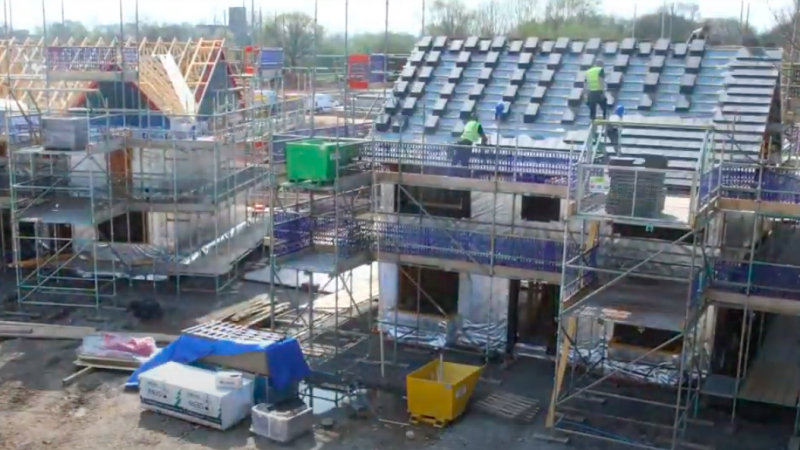The Centre for Cities estimates that the UK is missing 4.3 million homes compared to other European countries.

A bold and radical plan, which takes decisive action on planning reforms, social housing and is focused on a dramatic increase in housebuilding has been put forward so that the next Labour government can end the housing crisis.
The Fabian Society’s Local Government and Housing policy group, saw industry experts, practitioners and local Labour leaders come together to launch its ‘Homes For Britain: Planning for Growth Report’ in Parliament yesterday, which included a series of concrete proposals to end the housing crisis.
The report highlighted how Britain’s housing crisis has reached breaking point, with the Centre for Cities estimating that the UK is missing 4.3 million homes compared to other European countries.
Labour MP Andrew Western said that such a gap can only be resolved through a ‘dramatic increase in housebuilding’ and while conceding the proposals may well come across as ‘controversial’, said that now was the time to be ‘bold and brave and nothing must be off the table’, if Britain is once and for all to tackle the housing crisis.
The 10 proposals include:
1. Planning reform to create a flexible zoning system and integrated infrastructure plans.
2. A 500,000 a year housing target for England
3. Green Belt reform to build millions of low-carbon, suburban homes around train stations.
4. A Low-Income Housing Tax Credit to finance hundreds of thousands of new social homes.
5. A Builder’s Remedy to incentivise councils to plan and increased funding for planning and building control departments
6. Reform Right to Buy to enable more council housing delivery.
7. Improve health and housing equity through partnership.
8. Site allocations and funding for Community Land Trusts.
9. A housing first approach to homelessness.
10. A fairer share approach to property tax.
Commenting on the launch of the report, Western, MP for Stretford and Urmston and former leader of Trafford Council, told LFF: “I have always believed that a safe and secure home is the most fundamental building block in any child’s development. At present, far too many children have no such environment in which to prosper.
“That’s why we must be prepared to be bold and honest about how we address our chronic shortage of homes. We have a lack of supply and we must address it urgently or break the long-standing if unspoken rule that has long been accepted in our country: the idea that each generation must do better than the last.
“Some of these proposals may be controversial but I hope they will be thought provoking and start an overdue debate on the radical changes needed to tackle the housing crisis.”
Panellists at the event in Parliament yesterday to mark the launch of the report included Councillor Shama Tatler of Brent Council, Anthony Okereke, leader of Greenwich Council and Anthony Breach, senior analyst at the Centre for Cities.
An emphasis was placed on the need to reform planning laws, with a shift in focus from an emphasis on ‘preservation’ to ‘managing growth’ instead.
The Fabian’s report went on to highlight that there are three separate ways in which our current system restricts supply, most obviously the supply of land for building.
The first highlights the Green Belt. The report states: “Overall, Green Belts now cover some 1.4 times as much land as all our urbanised areas added together but they are not designed to preserve beautiful countryside: just to stop any building.”
The second problem with the current planning rules, highlighted by Professor Paul Cheshire CBE and Professor Christian Hilber in a joint article, is how every significant development has to be individually agreed to by a local council, meaning a substantial proportion of applications-even when on non-protected land and even when the local plan does not make it difficult to build-are rejected.
The pair go onto identify the third problem with our planning system, which is the inherent uncertainty contained within it. Developers cannot predict whether an application will be agreed or not. The authors add: ‘The uncertainty our politicised planning system injects into the development process means many otherwise viable developments do not get built.’
An overall bold and radical set of proposals to tackle an urgent problem.
Basit Mahmood is editor of Left Foot Forward
To reach hundreds of thousands of new readers we need to grow our donor base substantially.
That's why in 2024, we are seeking to generate 150 additional regular donors to support Left Foot Forward's work.
We still need another 117 people to donate to hit the target. You can help. Donate today.



